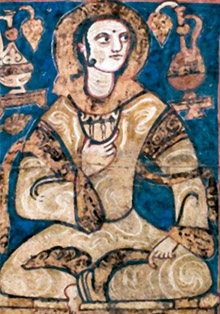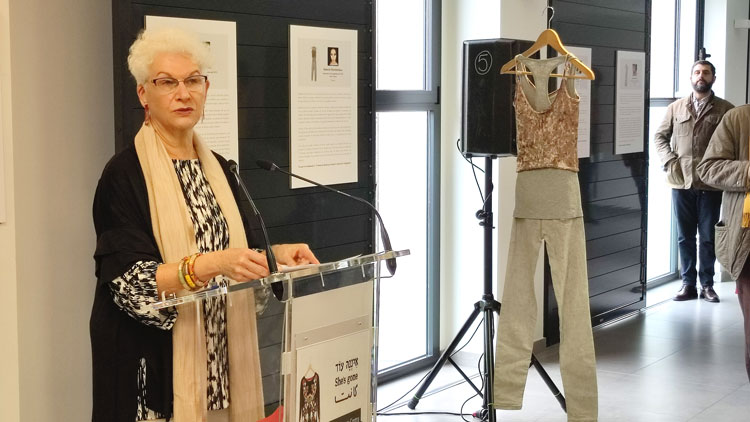Tonight at 8:00 p.m., Casa Árabe is presenting Paniagua’s latest album in concert, entitled El collar de la paloma (The Dove’s Necklace), which brings together his group of performers to explore the love and nostalgia evoked by the poets Ibn Hazm, of Cordoba, and Al-Mutamid, of Seville.
The musical group led by Eduardo Paniagua, who specialises in the music of medieval Spain, is made up of César Carazo (singing, fiddle and choir), Wafir Sheik (singing, Arabic oud and recitation), Jaime Muñoz (axabeba, kaval, calamus), and Eduardo Paniagua himself (psaltery, qanun, darbuka, tar and choir).
The poems by Ibn Hazm (Córdoba 994-1064) are adapted by Eduardo Paniagua from translations by Emilio García Gómez (1905-1995) and Jaime Sánchez Ratia. Those of Al-Mutamid (Seville 1040-1095) are adapted from translations by Juan Varela (1824-1905), Emilio García Gómez (1905-1995) and Miguel José Hagerty (1946-2010). The melodies are arrangements by Eduardo Paniagua of music from the Andalusian tradition of Morocco and Tunisia, as well as cantigas and traditional songs from Andalusia and Extremadura, included in this new CD from the PNEUMA collection.
By way of context, in “El collar de la paloma” Ibn Hazm evokes and resurrects with delicate nostalgia his native city, Cordoba, the “great metropolis of the South”, in its days of splendour under the rule of Almanzor. Dated in the city of Játiva in 1022, this Treatise on Love and Lovers is, in the words of José Ortega y Gasset, the work’s enthusiastic prologue writer, “the most illustrious book on the subject of love in Muslim civilisation”. For its part, the story of Al-Mutamid, born in Beja and king of the taifa of Seville, is an outpouring of passions, internal and external wars, love and heartbreak… It is said that the best weapon of the “poet king” was precisely that: poetry. Tickets can be purchased at this link.







